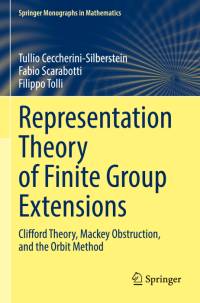Om Representation Theory of Finite Group Extensions
This monograph adopts an operational and functional analytic approach to the following problem: given a short exact sequence (group extension) 1 ¿ N ¿ G ¿ H ¿ 1 of finite groups, describe the irreducible representations of G by means of the structure of the group extension. This problem has attracted many mathematicians, including I. Schur, A.H. Clifford, and G. Mackey and, more recently, M. Isaacs, B. Huppert, Y.G. Berkovich & E.M. Zhmud, and J.M.G. Fell & R.S. Doran.
The main topics are, on the one hand, Clifford Theory and the Little Group Method (of Mackey and Wigner) for induced representations, and, on the other hand, Kirillov¿s Orbit Method (for step-2 nilpotent groups of odd order) which establishes a natural and powerful correspondence between Lie rings and nilpotent groups. As an application, a detailed description is given of the representation theory of the alternating groups, of metacyclic, quaternionic, dihedral groups, and of the (finite) Heisenberg group.
TheLittle Group Method may be applied if and only if a suitable unitary 2-cocycle (the Mackey obstruction) is trivial. To overcome this obstacle, (unitary) projective representations are introduced and corresponding Mackey and Clifford theories are developed. The commutant of an induced representation and the relative Hecke algebra is also examined. Finally, there is a comprehensive exposition of the theory of projective representations for finite Abelian groups which is applied to obtain a complete description of the irreducible representations of finite metabelian groups of odd order.
Visa mer

